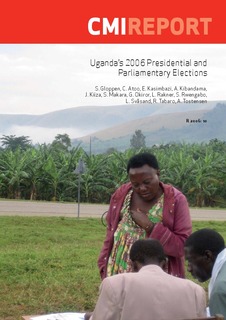| dc.description.abstract | This report analyses the 2006 Ugandan presidential and parliamentary election in terms of the broader process starting with the processes of setting the rule for political contestation, through the registration of voters and parties, the nomination of parties and candidates, the campaign, the voting, counting and tallying and finally, the handling of election complaints. The report examines four central institutions charged with ensuring an impartial and fair electoral process: the institutions comprising the electoral channel, the party system, parliament, and the judiciary. These four institutions are interdependent but also partly autonomous from each other. Understanding how they operate and interact is necessary in order to grasp the degree of democratic institutionalisation.
The quality and impartiality of the electoral administration are key to whether an election is seen as a legitimate process for delegation of authority from citizens to representatives. In new democracies the organisation of the electoral process is often characterised by ambiguous rules and problems associated with enforcement of the rules. The political party has become a most significant actor in electoral processes and democratic governance. Parties also serve to link citizens with parliament, which represents the citizens in setting the rules of the electoral game, influencing policy decisions and acting as an institutional check on executive power. The judiciary is the ultimate interpreter of the constitutional and legal rules. The report shows how problems and irregularities at various stages of the election cycle tilted the playing field in favour of the incumbent and compromised the integrity of the 2006 elections. | |
